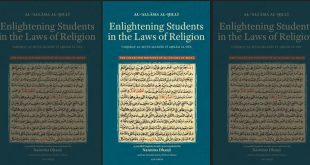The Certificate in Middle Eastern and Islamic Studies provides students the opportunity to formally explore the cultural, political, and religious diversity of the Middle East and the Islamic worlds.
About
The region commonly referred to as the Middle East includes over 20 Arabic speaking countries, as well as Iran, Turkey, and spans Southwest Asia and North Africa. A culturally, religiously, and linguistically diverse region, the Middle East today is one of the most geo-politically critical regions in the world. It is the birthplace of the three major monotheistic faiths, Judaism, Christianity, and Islam, the home of medieval Islamic civilizations, and home to rich literary, architectural, and religious traditions. Islam, a monotheistic faith that began in the Arabian Peninsula in the 7th century, is today practiced by over one billion people and is diversely expressed through a vast geographic, linguistic, and cultural terrain, from West Africa to East Asia. The Certificate in Middle Eastern and Islamic Studies provides students the opportunity to formally explore the cultural, political, and religious diversity of the Middle East and the Islamic worlds.
Students who have completed the requirements for the MEIS certificate and are graduating in December or May must complete the Program of Study form and the Certificate Completion form and submit them to Erin Ashbaugh, 240A Eaton Humanities, Department of Asian Languages and Civilizations:
MEIS Certificate Statement of Intent Form (PDF)
MEIS Certificate Completion Form (PDF)
MEIS Certificate Program of Study Form (PDF)
The certificate requires a total of 19 credit hours to include both language and content courses.
One year of either Arabic or Farsi language. Only language courses beginning at the Intermediate level (2000 level) will count toward fulfilling certificate credit hour requirements. Advanced Arabic language courses can also fulfill content course requirements. In addition to Arabic or Farsi, students are encouraged to study another Middle Eastern language, such as Hebrew or Turkish (although Turkish is not currently offered at CU, there may be a possibility for interested students to study Turkish through Direct Independent Language Study).
The certificate also requires that students complete 9 additional credit hours (three upper division courses), at least one of which must be a course designated ARAB. These 9 credit hours may be selected from the list of approved content courses below and are to be completed with a grade of C- or better.
As a certificate program with a focus on Islamic studies, at least one of the three content courses must have a specific focus on Islam and the Islamic world.
A student who participates in an approved study abroad program may earn up to 6 hours of lower division credit (2 courses) and 10 credit hours for language study at an intermediate or advanced level. Approval of study abroad credits will be reviewed on a case-by-case basis by the certificate’s advisor.
Students should also consult with the Middle Eastern and Islamic Studies Certificate advisor annually and must fulfill the requirements for a B.A. or B.S. degree in an established major in a school or college of the University of Colorado.
List of Approved Courses:
Certificate Advisor
Haytham Bahoora
Assistant Professor of Arabic Literature
Department of Asian Languages and Civilizations
HUMN 215
Haytham.Bahoora@Colorado.edu
Contact the Center
Address: University of Colorado Boulder, 1600 Pleasant St., Boulder CO 80309, Boulder, USA
Phone: 303-492-7294
Website: colorado.edu
 Ijtihad Network Being Wise and Faithful Muslim in the Contemporary World
Ijtihad Network Being Wise and Faithful Muslim in the Contemporary World
